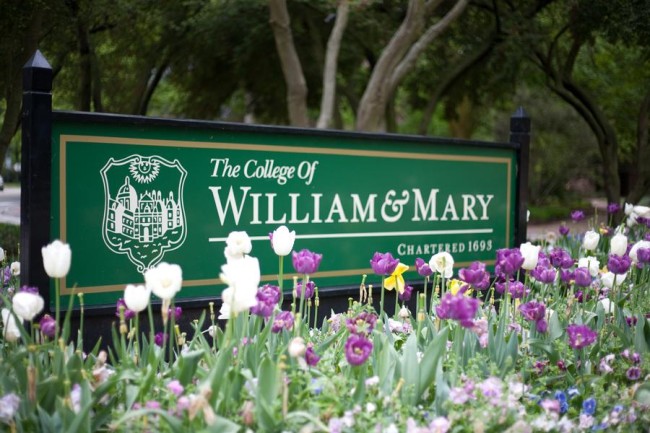Friday, April 4, six students, three professors and a full audience gathered in Washington Hall to discuss American foreign policy issues.
The students presented their research and policy recommendations with the Project on International Peace and Security, an undergraduate think tank focused on engaging students in real-world experience in the field of international relations.
Each of the six research fellows is paired with another student intern and a U.S. military fellow to draft a policy white paper over two semesters. Next, the students will present their research April 12 at both the Center for Strategic and International Studies and the Carnegie Endowment in Washington, D.C.
Government professors Dennis Smith and Amy Oakes founded the program in 2008. Following their presentations, the students answered questions from government professor Maurits van der Veen and then the general audience.
Max Sterling ’18 is an international relations major and a member of the Reserve Officer Training Corps. His research focuses on what he calls the “cyber collective,” a virtual organizational structure that terrorist groups can use to coordinate their operations.
He has worked with PIPS for four semesters and is the only member of this year’s team who has served in all three student positions. He said that he values the “sense of purpose” the program gives him, and he plans to eventually publish his paper.
“It’s one thing to just go to class and to learn about policy issues,” Sterling said. “It’s another thing, and I think a really unique opportunity that we have here, to go to D.C. to engage that community.”
He emphasized that working as an intern last year helped him collaborate with his partner, Sarah Harmon ’19.
“She has different skills than I do,” Sterling said. “So the most important thing, in my opinion, is that we can work together and each highlight our comparative advantages.”
Layla Abi-Falah ’17 is also majoring in international relations and presented on how post-war societies can reintegrate rape victims during reconstruction.
She said she chose her topic in part because sexual assault is a relevant issue on college campuses, and she believes that PIPS will prepare her for a professional career.
I hope one day, as a human rights lawyer, I will be able to kind of work with these women and bring about a positive change in their life,” Abi-Falah said.
“I hope one day, as a human rights lawyer, I will be able to kind of work with these women and bring about a positive change in their life,” Abi-Falah said.
She also said that she values the opportunity to build her confidence by collaborating with other students and to conduct intensive research as an undergraduate.
“We as undergrads can have a difference and can make a difference in the world even just right here in Williamsburg,” Abi-Falah said. “This is just one step in, hopefully, the bigger steps we’re going to be taking throughout our lives.”
Haley Larson ’18 is a government major and Arabic minor. She proposed in her project that U.S. non-governmental organizations could help encourage democratic change in Morocco through a youth-targeted cartoon series focused on civic education.
She said she remembers writing “murder boards” during planning sessions, where each member would write out their ideas and debate them with the group.
“You put your ideas up there, and you take ownership of them, and if somebody disagrees with you, they’re going to make it known, and you’re going to have to defend it if it’s something you believe in,” Larson said. “So it’s absolutely made me stronger in what it is I believe and just having the confidence in saying what I have to say.”
Even though the discussions would become intense, Larson said she thinks that the experience helped her to adopt a more professional mindset.
“Nothing is personal,” Larson said. “You have to consider everything, and the more people criticize your project, the stronger you will be when it comes time to present, and you’ll be better prepared to answer those questions.”
Smith said he also struggled to find the balance between criticism and encouragement, but he thinks that being candid is a compliment.
“It’s not out of malice,” Smith said. “It’s really an act of friendship. We treat you like a colleague. Colleagues help each other out. It’s better for me to tell you the truth so you can improve than for me to sugar coat it so you can achieve your goal.”
He said that he will remember the students this year for their companionship and productive collaboration.
“This group, almost from the very beginning, just kind of came together and were really rooting for each other and pushing each other to exceed their abilities, and it was fantastic to watch,” Smith said.
Smith also said that he hopes students across campus will pursue their goals, despite age or graduating year.
The hope that we have for students coming out of PIPS is that they feel empowered to make a change, whether it be in the policy community or as a citizen or even in corporations — that just because you are young doesn’t mean you can’t be ambitious and be a positive force in your community,” Smith said.
“The hope that we have for students coming out of PIPS is that they feel empowered to make a change, whether it be in the policy community or as a citizen or even in corporations — that just because you are young doesn’t mean you can’t be ambitious and be a positive force in your community,” Smith said.

